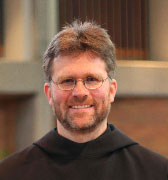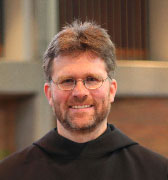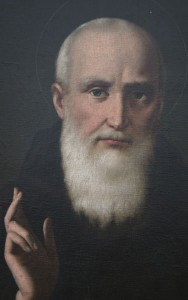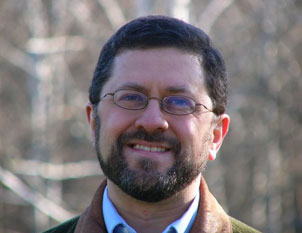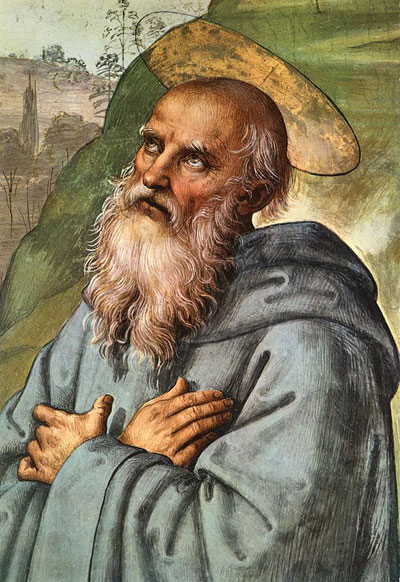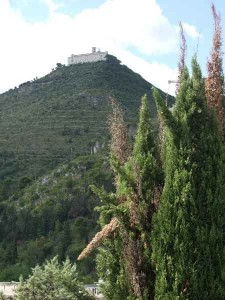Podcast: Play in new window | Download (Duration: 40:18 — 27.8MB) | Embed
Subscribe: Apple Podcasts | Spotify | Amazon Music | Android | Pandora | iHeartRadio | JioSaavn | Podchaser | Gaana | Podcast Index | Email | TuneIn | Deezer | Anghami | RSS | More

The Reception of the First Grace – The Life of St. Benedict – The Holy Rule of St. Benedict with Fr. Mauritius Wilde O.S.B
The podcast takes a closer look at St. Benedict, a fascinating historical figure, through the lens of his Rule. Father Mauritius emphasizes St. Benedict’s timeless wisdom, exploring how the Rule serves as a spiritual guide even in today’s world. The discussion touches upon St. Benedict’s biography, written by Pope Gregory, offering unique insights into the saint’s life and miracles.
The conversation unfolds with an exploration of St. Benedict’s early life, born to distinguished parents in Nor, Italy. The narrative highlights his journey to Rome for education, where he experienced a profound shift in perspective, leading him to turn away from worldly pleasures and embrace religious life. Father Mauritius underscores the courage and wisdom displayed by St. Benedict in defying his father’s expectations and choosing a different path, guided by a higher calling.
Much of the conversation reflects on the grace of detachment in St. Benedict’s life. The narrative unfolds how St. Benedict’s detachment from his father was not a rejection but a freeing process, aligning with the broader spiritual principles discussed in the Rule. Father Mauritius draws parallels between St. Benedict’s journey and the challenges individuals face in detaching from earthly expectations, fostering a deeper connection with God.
The podcast also addresses the role of prayer and experience in St. Benedict’s discernment process. Father Mauritius emphasizes the importance of integrating personal experiences with a prayerful perspective, mirroring St. Benedict’s own journey of discovery and transformation.
Overall, the episode provides a rich exploration of St. Benedict’s life and teachings, offering valuable insights into applying his spiritual principles in contemporary contexts. The engaging dialogue between Kris McGregor and Father Mauritius Wilde OSB makes for a thought-provoking and enlightening listening experience for anyone interested in spiritual growth and the enduring relevance of St. Benedict’s Rule.
Discerning Hearts Reflection Questions:
-
- St. Benedict’s Detachment: Explore the parallels between St. Benedict’s journey of detachment and your own spiritual path.
- Fatherly Influences: Reflect on the impact of earthly fathers on life choices, considering expectations, conflicts, and navigated detours.
- Prayer and Detachment: Examine how prayer has played a role in discerning God’s will and detaching from worldly expectations.
- Integration of Prayer and Experience: Delve into the relationship between prayer and personal experiences in making major life decisions.
- Detachment and True Freedom: Reflect on detachment not as a breaking away but as a journey toward genuine freedom in various aspects of life.
- Reflecting on Emotions: Consider elements that made St. Benedict thankful, angry, or sad regarding his father, and apply this reflection to your own experiences.
- Detachment and Absent Fathers: For those who lacked a strong relationship with earthly fathers, explore how St. Benedict’s detachment might inspire a deeper connection with the heavenly Father.
- Healing Wounds from Absence: Reflect on the impact of absent or deceased fathers, and consider how prayer and spiritual reflection can aid in healing.
- Applying Spiritual Law: Contemplate the spiritual law mentioned by Father Mauritius, understanding its application in daily life.
- Sharing Reflections: Consider sharing your reflections with a friend or mentor, fostering a deeper understanding of St. Benedict’s teachings in your faith journey.
From the Life of Our Most Holy Father St. Benedict by St. Gregory the Great:
INTRODUCTION.
THERE was a man of venerable life, Benedict by name and grace, who from the time of his very childhood carried the heart of an old man. His demeanour indeed surpassing his age, he gave himself no disport or pleasure, but living here upon earth he despised the world with all the glory thereof, at such time as he might have most freely enjoyed it. He was born in the province of Nursia of honourable parentage and sent to Rome to study the liberal sciences. But when he saw there many through the uneven paths of vice run headlong
to their own ruin, he drew back his foot, but new-set in the world, lest, in the search of human knowledge, he might also fall into the same dangerous precipice. Contemning therefore learning and studies and abandoning his father’s house and goods, he desired only to please God in a virtuous life. Therefore he departed skilfully ignorant and wisely unlearned.
Father Mauritius Wilde, OSB, Ph.D., did his philosophical, theological and doctoral studies in Europe. He is the author of several books and directs retreats regularly. He serves as Prior at Sant’Anselmo in Rome. For more information about the ministry of the Missionary Benedictines of Christ the King Priory in Schuyler, NE

